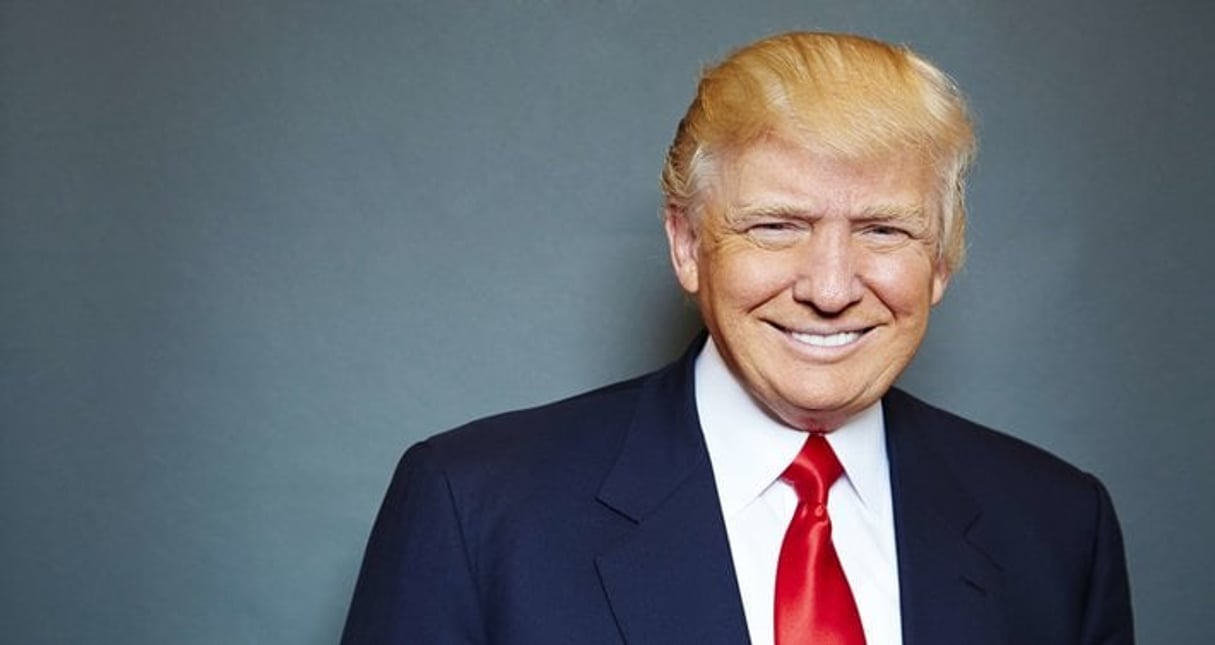What Donald Trump’s presidency means for Africa
Donald Trump has just been elected the 45th president of the United States. But what does it mean exactly for the african continent ?

Donald Trump was elected president of the United States on the 9th of November 2016. © Dan Hallman/AP/SIPA
Slowing economic growth
Africa’s economies are already struggling with the downturn. If Trump’s nationalist rhetoric on trade is translated into action, expect, “a global recession, with no end in sight”, according to economist Paul Krugman. The recently re-signed AGOA trade deal between Africa and the US, worth some $50bn, is under threat. More seriously, if Trump holds good to his promise to pick a trade war with China, the aggregate demand for commodities will plummet further – one of the key drivers of many African economies.
Upon news of Trump’s election, stock futures fell in Asia and Europe and the Dow Jones dropped 800 points. Financial markets see Trump as an uncertainty. He has suggested that the US should buy back some of its $20tn debt – at a discount of course.
Empowering dictators
Trump is known to be fond of the leadership styles of Saddam Hussein and Vladimir Putin. The US president-elect has already been congratulated by two members of Africa’s third term club: Burundi’s President Pierre Nkurunziza and Uganda’s President Yoweri Museveni.
Trump has publicly supported torture and called for the killing of the families of terrorists. He also supports the continuing use of the notorious Guantanamo Bay facility in Cuba. Incumbent President Barack Obama had promised to close that facility during his presidency.
Slashing development aid
The US is the world’s biggest bilateral aid donor. Last year Washington spent $31bn on overseas development assistance, with much of those funds going to Africa. In an interview with the Washington Post, Trump said his presidency will focus on internal programmes rather than overseas aid. “We have no money for education because we can’t build in our own country,” he said. “And at what point do you say hey, we have to take care of ourselves. So, you know, I know the outer world exists and I’ll be very cognizant of that but at the same time, our country is disintegrating, large sections of it, especially in the inner cities. »
Trump has, however, spoken out in support of the US President’s Emergency Plan for AIDS Relief, which was former President George W. Bush’s main Africa-focused initiative during his presidency between 2000 and 2008.
Extremist recruitment
Trump’s calls for a temporary ban on muslim immigrants into the US was heavily criticised as xenophobic and divisive. Somali terror group Al Shabaab has cells in the US, most notably in Minnesota where there is a large Somali population. On Monday, Trump spoke out against the Somali community during a visit to Minnesota. « You’ve seen first-hand the problems caused with faulty refugee vetting, with very large numbers of Somali refugees coming into your state without your knowledge, without your support or approval,” he told a cheering crowd. “Some of them [are] joining Isis and spreading their extremist views all over our country and all over the world. » These comments are likely to make more young men feel marginalised, driving them into the arms of terror organisations.
Climate change
Trump’s victory will land as a bombshell in Marrakech, where politicians and activists are gathering to continue implementation of the landmark climate deal signed in Paris last year. But many of Trump’s supporters are climate change skeptics. For the many Africans living on coasts threatened by rising seawaters – 20 million people in Nigeria alone – this is bad news. Likewise the two in three people on the continent who rely on agriculture, and are threatened by drought and water shortages.
European repercussions
And with elections scheduled across Europe in 2017 – France, Germany, Italy – might far-right forces like the Front Nationale feel the wind at their back? Should a populist wave crash across Europe, migrants already under siege will face tougher pressures. Already in post-Brexit Britain, racists have been emboldened in their physical confrontations with migrants. Identity checks, internment camps, populist-inspired violence, closed borders: europeans may have uncomfortable flashbacks to the 1930s.
La Matinale.
Chaque matin, recevez les 10 informations clés de l’actualité africaine.

Consultez notre politique de gestion des données personnelles
Les plus lus – Politique
- Sexe, pouvoir et vidéos : de quoi l’affaire Baltasar est-elle le nom ?
- Législatives au Sénégal : Pastef donné vainqueur
- Au Bénin, arrestation de l’ancien directeur de la police
- L’Algérie doit-elle avoir peur de Marco Rubio, le nouveau secrétaire d’État améric...
- Mali : les soutiens de la junte ripostent après les propos incendiaires de Choguel...





